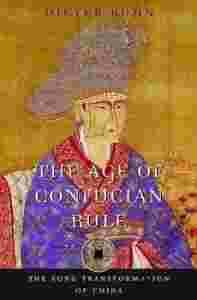|
Just over a thousand years ago, the Song dynasty
emerged as the most advanced civilization on earth.
Within two centuries, China was home to nearly half of
all humankind. In this concise history, we learn why the
inventiveness of this era has been favorably compared
with the European Renaissance, which in many ways the
Song transformation surpassed. With the chaotic
dissolution of the Tang dynasty, the old aristocratic
families vanished. A new class of scholar-officials -
products of a meritocratic examination system - took up
the task of reshaping Chinese tradition by adapting the
precepts of Confucianism to a rapidly changing world.
Through fiscal reforms, these elites liberalized the
economy, eased the tax burden, and put paper money into
circulation. Their redesigned capitals buzzed with
traders, while the education system offered advancement
to talented men of modest means. Their rationalist
approach led to inventions in printing, shipbuilding,
weaving, ceramics manufacture, mining, and agriculture.
With a realist's eye, they studied the natural world and
applied their observations in art and science.And with
the souls of diplomats, they chose peace over war with
the aggressors on their borders. Yet persistent military
threats from these nomadic tribes - which the Chinese
scorned as their cultural inferiors - redefined China's
understanding of its place in the world and solidified a
sense of what it meant to be Chinese. ''The Age of
Confucian Rule'' is an essential introduction to this
transformative era. ''A scholar should congratulate
himself that he has been born in such a time'' (Zhao
Ruyu, 1194). |
|

